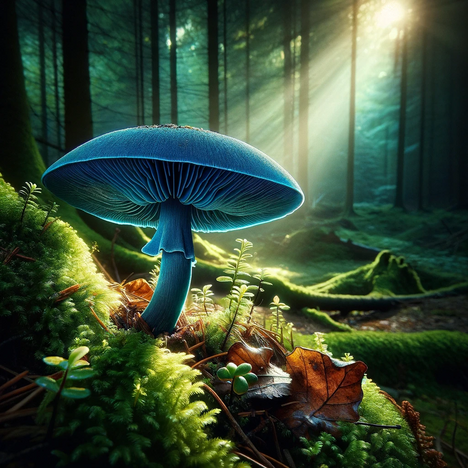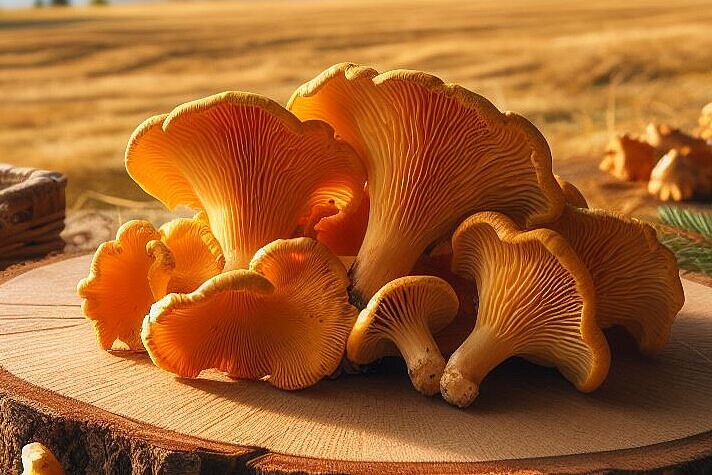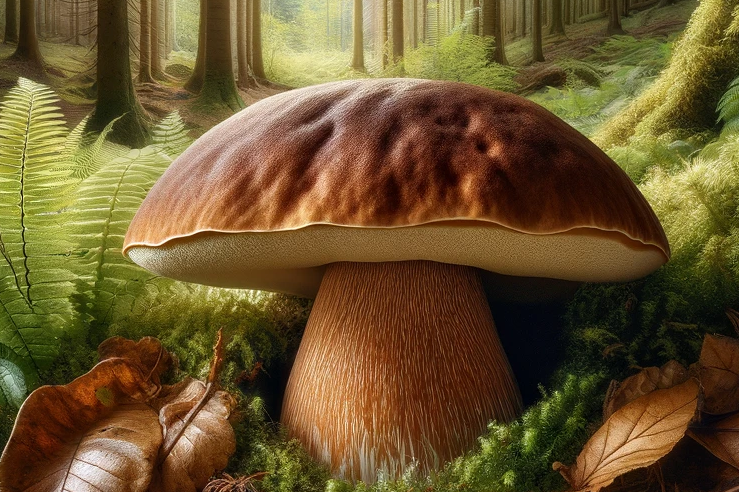Indigo irritant

What is the indigo mushroom?
The indigo mushroom is an edible mushroom that immediately catches the eye with its bright blue to purple coloring. It grows mainly in forests in North America and some parts of Asia and belongs to the russula family (Russulaceae). When the mushroom is damaged, a milky sap is released that darkens in the air, which is a characteristic feature of this type of mushroom. Its taste is mild to slightly spicy, which makes it a popular ingredient in human cuisine. But what about the use of this colorful forest plant in the diet of our four-legged friends?
The indigo vinegar in dog nutrition
The question of whether the indigo vinegar is a suitable ingredient for dog nutrition requires a differentiated approach. Below we look at the potential advantages and possible disadvantages.
Advantages
- Nutrient content: Mushrooms in general are known for their high content of proteins, vitamins (especially B vitamins) and minerals such as iron, potassium and phosphorus. The indigo rice mushroom can therefore be a nutritious addition to a dog's diet.
- Antioxidant properties: Like many types of mushrooms, the indigo vinegar has antioxidant substances that can help neutralize free radicals. These properties support the immune system and can contribute to a dog's general health.
- Naturalness: For dog owners who value a natural diet for their four-legged friend, the indigo rice mushroom offers an interesting opportunity to enrich the diet and provide variety.
Disadvantages
- Tolerance: Not all dogs tolerate mushrooms equally well. Digestive problems, such as diarrhea or vomiting, can occur, especially if the mushroom is fed in large quantities.
- Toxicity of certain mushroom species: While the indigo riceker itself is considered edible, there is always a risk of confusion with poisonous species when foraging for mushrooms in the forest. Such a mix-up can have serious health consequences for the dog.
- Allergic reactions: As with any new ingredient in the diet, there is a risk of allergic reactions, which can range from skin rashes to more severe symptoms.
The indigo mushroom is a fascinating mushroom that is not only visually impressive, but can also potentially add valuable nutrients to your dog's diet. However, the decision to introduce it into your four-legged friend's diet should be carefully considered. It is advisable to test small amounts first and observe your dog's reaction. In addition, you should always ensure that the mushroom has been correctly identified to avoid the risk of confusion with poisonous species. With the right care, the indigo mushroom can be an exciting and nutritious addition to your dog's diet.
If you notice any signs of hypersensitivity or poisoning in your dog, you should see your vet immediately. We are not a substitute for a vet, but we try to be as accurate as possible. Every dog reacts differently and we recommend you get a second opinion or consult your vet if in doubt.
Stay healthy and take good care of your four-legged friend!😊
Similar to Indigo irritant
Chanterelles are a type of mushroom from the stubble mushroom family. They have a yolk to golden yellow cap, which is funnel-shaped, and ridges on the underside of the cap that run down the stem....
Porcini mushrooms belong to the boletus family and are one of the best-known and tastiest types of mushroom. They have a firm, light brown cap and a white to yellowish stalk. The tubes under the cap...
The chestnut bolete (Boletus badius), also known as the chestnut mushroom, belongs to the boletus family and can be found in many forests in Europe and North America. Its characteristic feature is...
Butter mushrooms belong to the genus of the butter mushrooms and can be found in forests and meadows. They are known for their characteristic, slightly nutty flavor and soft texture, which gives...



